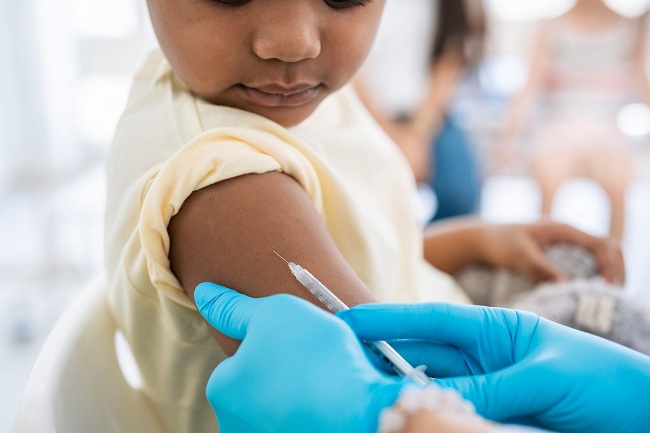EXPERTS in a new study have said that level of literacy, access to the internet and place of delivery are strong predictors of full vaccination in Nigeria.
In addition, they declared that maternal age, literacy level, antenatal clinic attendance, gender of the household head, place of residence and place of delivery are major determinants for the completion of the BCG vaccine.
The researchers assessed the degree of adherence to full vaccination schedules for tetanus, BCG, measles and pentavalent in children across Nigeria’s six geopolitical zones and determined the sociocultural variables linked to these vaccination schedules.
Their findings were published in the Journal of Infection in Developing Countries.
A child was considered fully vaccinated if he or she had received neonatal tetanus, a dose of BCG, two doses of measles and three doses of pentavalent [DPT, Hepatitis B (Hep B), and Haemophilus influenzae type B (Hib) vaccines].
The study, which relied on the nationally representative 2018 Nigeria demographic and health survey (DHS), sponsored by the United States Agency for International Development (USAID), targetted parents of childbearing age with children under the age of five in their households.
The researchers reported that at the national level, those who had received full tetanus, BCG, measles and pentavalent vaccinations were 69.3 percent, 63.8 percent, 8.5 percent and 41.6 percent, respectively.
Full vaccination compliance was highest in the South-East for tetanus (94.6 percent), pentavalent (70.2 percent), and BCG (92.4 percent), while the South-West was highest for full vaccination of measles (14.9 percent). For all vaccines, the North-West zone had the lowest compliance with full vaccination.
While compliance with full tetanus and BCG vaccinations was greater than 60 percent at the national level, less than 50 percent and 10 percent of full vaccination compliance were recorded for pentavalent and measles vaccinations, respectively.
According to the study, “for tetanus, literacy level, working status of respondents, antenatal care attendance, access to the internet, gender of the household head and place of delivery were strong influencers of the completeness of the tetanus vaccine.
“Maternal age, literacy level, working status of respondents, residing with husband or spouse, finance, internet access and place of delivery were the significant socio-determinants for full compliance with the measles vaccination.
“Identified determinants for full compliance with pentavalent vaccination were maternal age, literacy level, working status of respondents, antenatal care attendance, internet access, place of residence, distance to a health facility, and place of delivery.”
In the study, the evaluation of compliance for vaccination according to state of residence showed that 10 states had the highest percentage of those who were fully vaccinated for tetanus (84–98 percent).
“These states were Ogun, Lagos, Osun, Ekiti, Ondo, Edo, Enugu, Anambra, Abia, Ebonyi, Imo, and Rivers. Sokoto and Zamfara states were the least compliant.
The completeness of the measles vaccine was very poor generally, and only Oyo and Rivers states attained 22.6-28.1 percent full vaccination status. The majority of the states in the North were within 0.7 and 6.2 percent of full vaccination status,” they added.
The researchers, however, stated the need for an urgent review of the logistics of full immunisation coverage to ensure synergy with the way of life of the residents and improve vaccination compliance rates.
“The implication of this finding is that the national outlook may not be the best for attaining complete vaccination in all states. Policies should be better suited for each territory or state to improve outcomes,” they declared.
